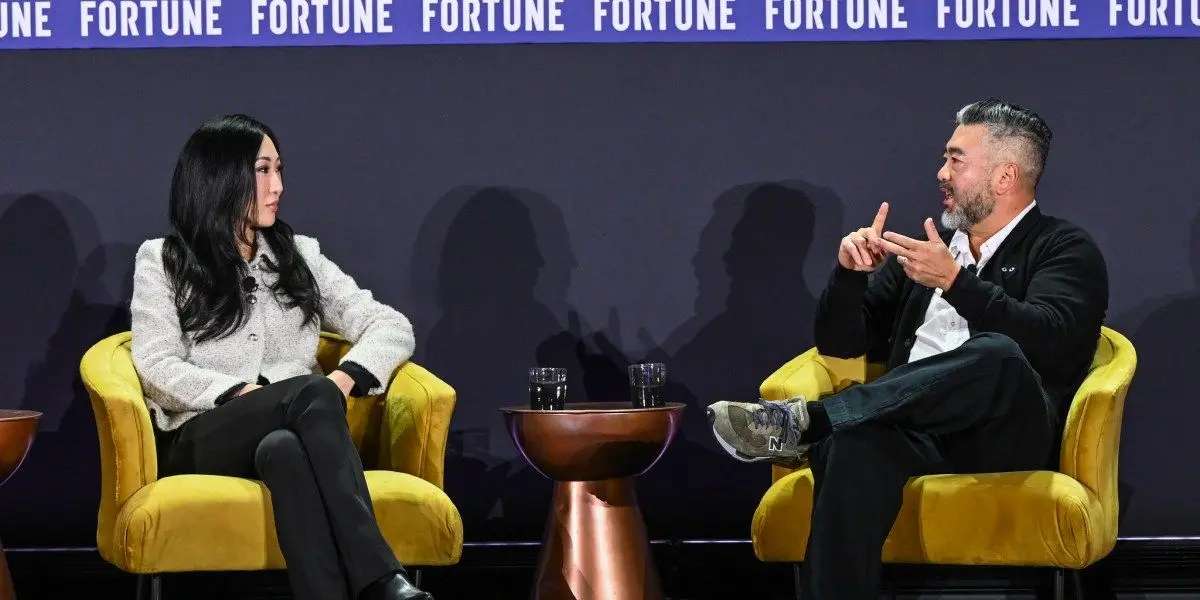Tech Giants Warn of Potential AI Bubble, Drawing Parallels to Dot-Com Era
4 Sources
4 Sources
[1]
It's not only Sam Altman anymore warning about an AI bubble. Mark Zuckerberg says a 'collapse' is 'definitely a possibility' | Fortune
Deutsche Bank called it "the summer AI turned ugly." For weeks, with every new bit of evidence that corporations were failing at AI adoption, fears of an AI bubble have intensified, fueled by the realization of just how topheavy the S&P 500 has grown, along with warnings from top industry leaders. An August study from MIT found that 95% of AI pilot programs fail to deliver a return on investment, despite over $40 billion being poured into the space. Just prior to MIT's report, OpenAI CEO Sam Altman rang AI bubble alarm bells, expressing concern over the overvaluation of some AI startups and the intensity of investor enthusiasm. These trends have even caught the attention of Fed Chair Jerome Powell, who noted that the U.S. was witnessing "unusually large amounts of economic activity" in building out AI capabilities. The Meta CEO acknowledged that the rapid development of and surging investments in AI stands to form a bubble, potentially outpacing practical productivity and returns and risking a market crash. But Zuckerberg insists that the risk of over-investment is preferable to the alternative: being late to what he sees as an era-defining technological transformation. "There are compelling arguments for why AI could be an outlier," Zuckerberg hedged in an appearance on the Access podcast. "And if the models keep on growing in capability year-over-year and demand keeps growing, then maybe there is no collapse." Then Zuckerberg joined the Altman camp, saying that all capital expenditure bubbles like the buildout of AI infrastructure, seen largely in the form of data centers, tend to end in similar ways. "But I do think there's definitely a possibility, at least empirically, based on past large infrastructure buildouts and how they led to bubbles, that something like that would happen here," Zuckerberg said. Zuckerberg pointed to past bubbles, namely railroads and the dot-com bubble, as key examples of infrastructure buildouts leading to a stock-market collapse. In these instances, he claimed that bubbles occurred due to businesses taking on too much debt, macroeconomic factors, or product demand waning, leading to companies going under and leaving behind valuable assets. The Meta CEO's comments echoed Altman's, who has similarly cautioned that the AI boom is showing many signs of a bubble. "When bubbles happen, smart people get overexcited about a kernel of truth," Altman told The Verge, adding that AI is that kernel: transformative and real, but often surrounded by irrational exuberance. Altman has also warned that "the frenzy of cash chasing anything labeled 'AI'" can lead to inflated valuations and risk for many. The consequences of these bubbles are costly. During the dot-com bubble, investors poured money into tech startups with unrealistic expectations, driven by hype and a frenzy for new internet-based companies. When the results fell short, the stocks involved in the dot-com bubble lost more than $5 trillion in total market cap. An AI bubble stands to have similarly significant economic impacts. In 2025 alone, the largest U.S. tech companies, including Meta, have spent more than $155 billion on AI development. And, according to Statista, the current AI market value is approximately $244.2 billion. But, for Zuckerberg, losing out on AI's potential is a far greater risk than losing money in an AI bubble. The company recently committed at least $600 billion to U.S. data centers and infrastructure through 2028 to support its AI ambitions. According to Meta's chief financial officer, this money will go towards all of the tech giant's US data center buildouts and domestic business operations, including new hires. Meta also launched its superintelligence lab, recruiting talent aggressively with multi-million-dollar job offers, to develop AI that outperforms human intelligence. "If we end up misspending a couple hundred billion dollars, that's going to be very unfortunate obviously. But I would say the risk is higher on the other side," Zuckerberg said. "If you build too slowly, and superintelligence is possible in three years but you built it out were assuming it would be there in five years, then you're out of position on what I think is going to be the most important technology that enables the most new products and innovation and value creation in history." While he sees the consequences of not being aggressive enough in AI investing outweighing overinvesting, Zuckerberg acknowledged that Meta's survival isn't dependent upon AI's success. For companies like OpenAI and Anthropic, he said "there's obviously this open question of to what extent are they going to keep on raising money, and that's dependent both to some degree on their performance and how AI does, but also all of these macroeconomic factors that are out of their control."
[2]
OpenAI board chair doubles down on CEO Sam Altman's belief we're in an AI bubble: 'A lot of people will lose a lot of money' | Fortune
OpenAI chairman Bret Taylor is not naive to the potentially mammoth consequences of a tech bubble, but he said the prospect isn't without its benefits. The former Facebook CTO and current CEO of AI business platform Sierra shares the opinion of OpenAI CEO Sam Altman that we're in an AI bubble -- but that's not entirely a bad thing. "It is both true that AI will transform the economy, and I think it will, like the internet, create huge amounts of economic value in the future," Taylor said in the most recent episode of The Verge's "Decoder" podcast. "I think we're also in a bubble, and a lot of people will lose a lot of money. I think both are absolutely true at the same time, and there's a lot of historical precedent for both of those things being true at the same time." Altman echoed Taylor's sentiments last month, warning of big winners and big losers from an AI hype cycle. "Someone is going to lose a phenomenal amount of money," Altman said during a dinner for journalists, The Verge reported. "We don't know who. And a lot of people are going to make a phenomenal amount of money." Taylor and Altman join the chorus of industry giants and economists warning about how the astronomical rise of AI has led investors to overhype companies, inflating them beyond their actual worth -- with significant financial consequences. Apollo Global Management chief economist Torsten Sløk warned in July that the top 10 companies in the S&P 500 are more overvalued today than they were during the dotcom era 25 years ago. Alibaba's chair Joseph Tsai and C3.ai CEO Tom Siebel have both warned in the last year that we're entering an AI bubble. The fallout of the dotcom bubble burst in 2000 was weighty: In March, the NASDAQ rose to its peak of 5,048 units, only to plummet to 1,139.90 units in October, a 77% plummet. The downturn, by the time it ended in 2002, had wiped out about $5 trillion in market capitalizations. According to Taylor, it's worth paying attention to the big winners of the dotcom era when drawing conclusions about the impact of a bubble burst and what it would mean for the tech industry. "There's a lot of parallels to the internet bubble," he said. Looking at the successful companies that emerged from the early dotcom era is evidence that just because scores of internet companies were overhyped doesn't mean the hype wasn't justified for others, according to Taylor. The dotcom bust had famous flops such as Pets.com, a pet-supplies retailer that went belly-up prioritizing rapid growth, and Webvan, a grocery-delivery company that filed for bankruptcy in July 2001 -- but it also produced Amazon and Google, which have growth to be some of the world's largest companies, Taylor pointed out. Amazon's share price has grown nearly 15,000% since October 2000, and Google, which was not a publicly traded company in 2000, has similarly grown, reaching a more than $2.9 trillion market cap. Moreover, even failed companies like Webvan made their mark on the tech work, Taylor said, paving the way for companies like Instacart and DoorDash to build upon the retail delivery companies of the turn of the century. "You start to look and you say, 'Actually, if you look at the GDP of the world, how much has actually been created or influenced by the existence of the internet?' One could argue that all the people in 1999 were kind of right," he said. "It was as impactful on pretty much every measure." Taylor indicated there will be winners of the AI boom, but it's difficult to say what these wins will look like. He pointed to fiber companies, many of which went under as a result of the dotcom bust, but not before making their mark on improving the speed of data. Most famously, Global Crossing, which had a value of $55 billion in its heyday, went bankrupt in 2002 after failing to find customers to make it profitable. "Because of the amount of economic opportunity, you just end up with a ton of investors, and some companies will fail and some will succeed," Taylor said. "If you look at the people who built out fiber in the early days of the internet, a lot of them went bankrupt, but that fiber ended up getting used, just by the next person or the private equity firm or whatever entity bought it."
[3]
Mark Zuckerberg Warns AI Boom Could Mirror Dot-Com Bubble: '...Something Like That Would Happen Here' - Alphabet (NASDAQ:GOOG), Amazon.com (NASDAQ:AMZN)
Meta Platforms Inc. META CEO Mark Zuckerberg has acknowledged the possibility of an AI-driven market bubble, comparing today's frenzy to the dot-com era, but said failing to invest aggressively would be an even bigger mistake. Zuckerberg Acknowledges Bubble Risk Speaking on the Access podcast that was posted on Friday, Zuckerberg said the rapid pace of artificial intelligence spending could spark a market correction. "There's definitely a possibility, at least empirically, based on past large infrastructure buildouts and how they led to bubbles, that something like that would happen here," he said. He drew parallels to railroads and the dot-com bubble, which saw overbuilding and debt-fueled growth lead to crashes. Despite these risks, Zuckerberg argued the AI buildout could be an exception if demand for more capable models continues to grow each year. "And if the models keep on growing in capability year-over-year and demand keeps growing, then maybe there is no collapse," he added. See Also: Gene Munster Says Meta's $65 Billion AR/VR Bet Shows Hardware, Software, AI Integration Is 'Really Hard,' Giving Apple More Time On AI Over-Investing Better Than Falling Behind: Zuckerberg Zuckerberg said that even if overspending happens, the cost of underinvestment is far worse. "If we end up misspending a couple hundred billion dollars, that's going to be very unfortunate. But I would say the risk is higher on the other side." He added, "If you build too slowly, and superintelligence is possible in three years but you built it out assuming it would be there in five years, then you're out of position on what I think is going to be the most important technology," he explained. Meta has committed at least $600 billion through 2028 for U.S. data centers and AI infrastructure, while also launching a superintelligence lab to recruit top researchers. Altman And Taylor Also Sound Caution Zuckerberg's comments echo those of OpenAI CEO Sam Altman, who has previously said AI is in a bubble fueled by hype and cash chasing inflated valuations. "When bubbles happen, smart people get overexcited about a kernel of truth," Altman said in August. OpenAI chairman Bret Taylor also compared today's surge to the dot-com boom. While many companies failed then, he noted Amazon.com, Inc. AMZN and Alphabet Inc. GOOG GOOGL emerged stronger, showing that bubbles can still produce transformative winners. Wall Street Split On AI Outlook Bank of America strategist Michael Hartnett has flagged bubble signals, citing the S&P 500's price-to-book ratio surpassing levels from 2000. He warned investors, saying, "It better be different this time." Meanwhile, Wedbush Securities analyst Dan Ives disagreed, calling the current cycle the "fourth industrial revolution." Following Altman's comments, Ives said AI demand is only growing and argued, "We are only in the second inning of the game." Benzinga's Edge Stock Rankings indicate that META is trending upward in the short, medium and long term, with additional performance details available here. Read Next: White House AI Czar David Sacks Warns Washington Must Let US Chipmakers Like Nvidia Sell Abroad Or Risk Forfeiting AI Race To Huawei And China Disclaimer: This content was partially produced with the help of AI tools and was reviewed and published by Benzinga editors. Image via Shutterstock AMZNAmazon.com Inc$231.750.22%OverviewGOOGAlphabet Inc$255.901.41%GOOGLAlphabet Inc$255.341.31%METAMeta Platforms Inc$776.47-0.48%Market News and Data brought to you by Benzinga APIs
[4]
OpenAI Chairman Compares AI To Dot-Com Bubble: 'Some Companies Will Fail And Some Will Succeed' - Amazon.com (NASDAQ:AMZN)
OpenAI Chairman Bret Taylor believes the AI sector may be in a bubble similar to the dot-com era, but that's not deterring him from OpenAI or his other AI startup. What Happened: As AI use cases grow, valuations in the sector have surged. OpenAI is now one of the world's most valuable private companies. In a recent interview with The Verge, Taylor expressed caution about the sector's rising valuations. The Verge also asked Taylor about OpenAI CEO Sam Altman, who said that we're currently in an AI bubble. Taylor agreed. "I think there's a lot of parallels to the internet bubble," Taylor, the former CTO of Meta Platforms, said. Dot-com companies like Pets.com and Webvan were flops and still got attention. But some companies made it out of the bubble, Taylor explained. That includes "two of the largest companies in the world" -- Amazon and Google. The OpenAI chairman noted that examining the growth of GDP reveals how much has been created by the "existence of the internet." "One could argue that all the people in 1999 were kind of right. It was as impactful on pretty much every measure." Taylor gave props to Webvan that may have been early and help pave the way for the success of companies like Instacart and DoorDash today. Taylor said if you were an Amazon.com Inc AMZN shareholder during the dot-com bubble, you're still looking good today. When it comes to the AI sector today and the bubble, Taylor said, "there's going to be huge winners." "Some companies will fail and some will succeed." Taylor said AI can transform the economy and create value for the future, but some companies and investors will lose money. Read Also: OpenAI Chairman Says Only Tech Giants Can Afford New AI Models -- Startups Should Focus On Applications Why Taylor Isn't Worried An AI bubble would be bad news for Taylor, who is also the CEO and founder of Sierra, an AI agent company. And yet, Taylor isn't worried about an AI bubble. Instead, he argues against the notion that companies aren't seeing results from AI spending. "We're just in a really new world because we're taking something scarce and making it plentiful," Taylor said. When it comes to Sierra, Taylor said the company isn't selling AI. Rather, it's "selling customer experience" and has a near 100% success rate with customers doing proof of concept studies before going live. As Taylor sees it, we're in "the early days of AI." Companies are using the tech to either solve problems or build AI solutions themselves, he explains. For example, Sierra is partnering with retailers so consumers can submit a photo of damaged goods as a warranty claim. The new product is then shipped out, all done without a human involved. "These agents are remarkable at what they're doing," Taylor adds. Sierra has hundreds of customers, with more than 50% of the company's customers having annual revenue of more than $1 billion and 20% of the company's customers having yearly revenue of more than $10 billion. Image: Shutterstock AMZNAmazon.com Inc $231.741.57% Stock Score Locked: Want to See it? Benzinga Rankings give you vital metrics on any stock - anytime. Reveal Full Score Edge Rankings Momentum 69.31 Growth 92.42 Quality 61.68 Value 46.04 Price Trend Short Medium Long Overview Market News and Data brought to you by Benzinga APIs
Share
Share
Copy Link
Mark Zuckerberg and OpenAI leaders acknowledge the possibility of an AI bubble, comparing it to the dot-com era. Despite risks, they argue that aggressive investment in AI is crucial for future success.
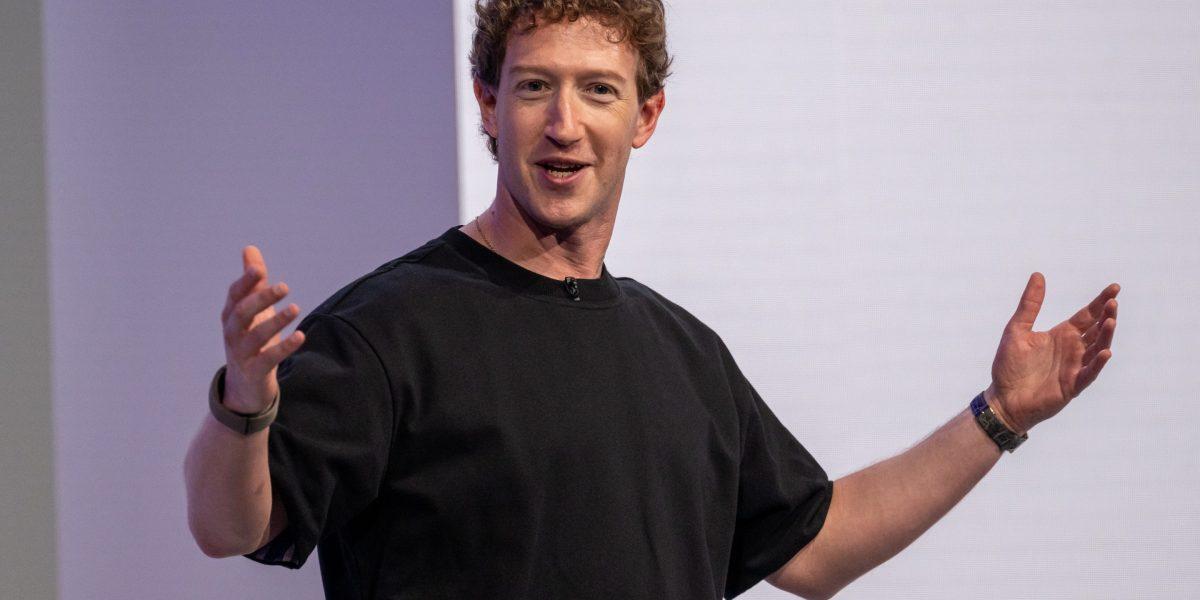
Tech Giants Sound Alarm on AI Bubble
As artificial intelligence (AI) continues to dominate headlines and attract massive investments, industry leaders are raising concerns about a potential AI bubble. Mark Zuckerberg, CEO of Meta Platforms, and key figures from OpenAI have drawn parallels between the current AI boom and the dot-com era, warning of possible economic consequences
1
2
.Zuckerberg's Cautious Optimism
In a recent podcast appearance, Zuckerberg acknowledged the possibility of an AI-driven market bubble, stating, "There's definitely a possibility, at least empirically, based on past large infrastructure buildouts and how they led to bubbles, that something like that would happen here"
1
3
. However, he also suggested that AI could be an exception if demand and capabilities continue to grow year-over-year.OpenAI Leaders Echo Concerns
OpenAI's CEO Sam Altman and board chair Bret Taylor have expressed similar sentiments. Taylor stated, "It is both true that AI will transform the economy, and I think it will, like the internet, create huge amounts of economic value in the future. I think we're also in a bubble, and a lot of people will lose a lot of money"
2
4
.Lessons from the Dot-Com Era
Industry leaders are drawing comparisons to the dot-com bubble of the late 1990s and early 2000s. While many companies failed during that period, giants like Amazon and Google emerged stronger, demonstrating that bubbles can still produce transformative winners
2
4
.Related Stories
The Case for Aggressive Investment
Despite the risks, tech leaders argue that the potential consequences of underinvestment in AI far outweigh those of overinvestment. Zuckerberg emphasized, "If we end up misspending a couple hundred billion dollars, that's going to be very unfortunate. But I would say the risk is higher on the other side"
1
3
.Market Reactions and Expert Opinions
Wall Street remains divided on the AI outlook. While some analysts flag bubble signals, others view the current cycle as the "fourth industrial revolution"
3
. The debate continues as companies pour billions into AI development, with the potential for both significant gains and losses in the coming years.References
Summarized by
Navi
Related Stories
AI Bubble Surpasses Dot-Com Era, Economists Warn of Potential Market Crash
18 Jul 2025•Business and Economy
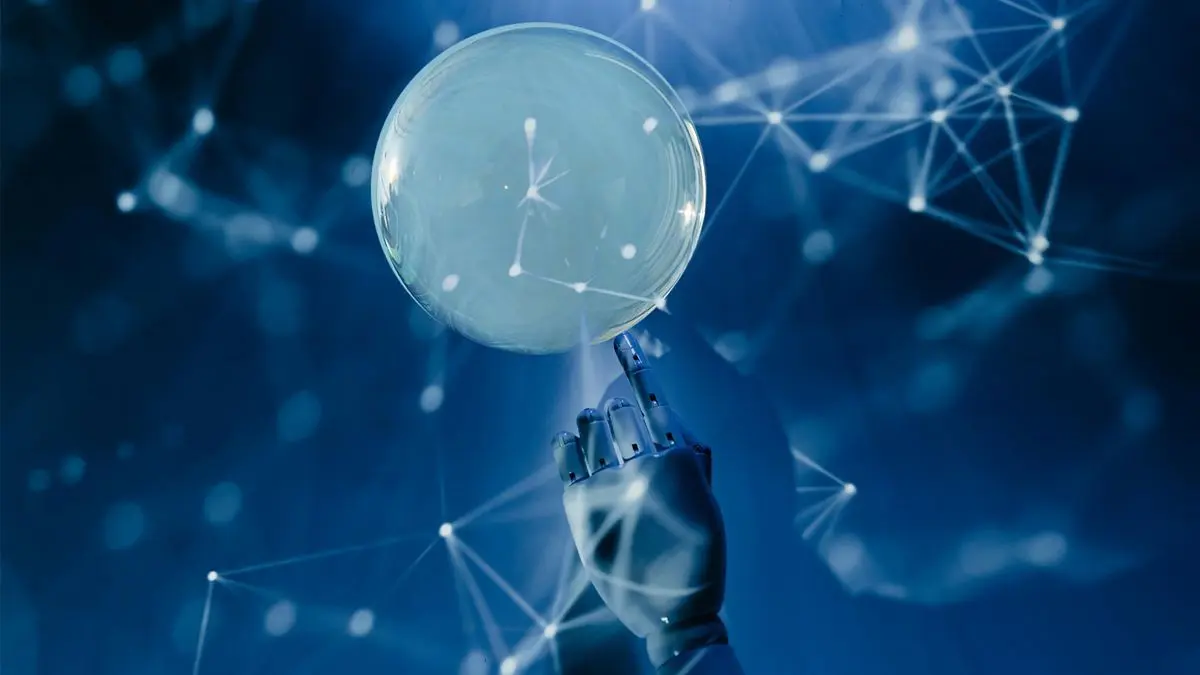
Sam Altman Warns of AI Bubble While OpenAI Seeks $500B Valuation
16 Aug 2025•Business and Economy
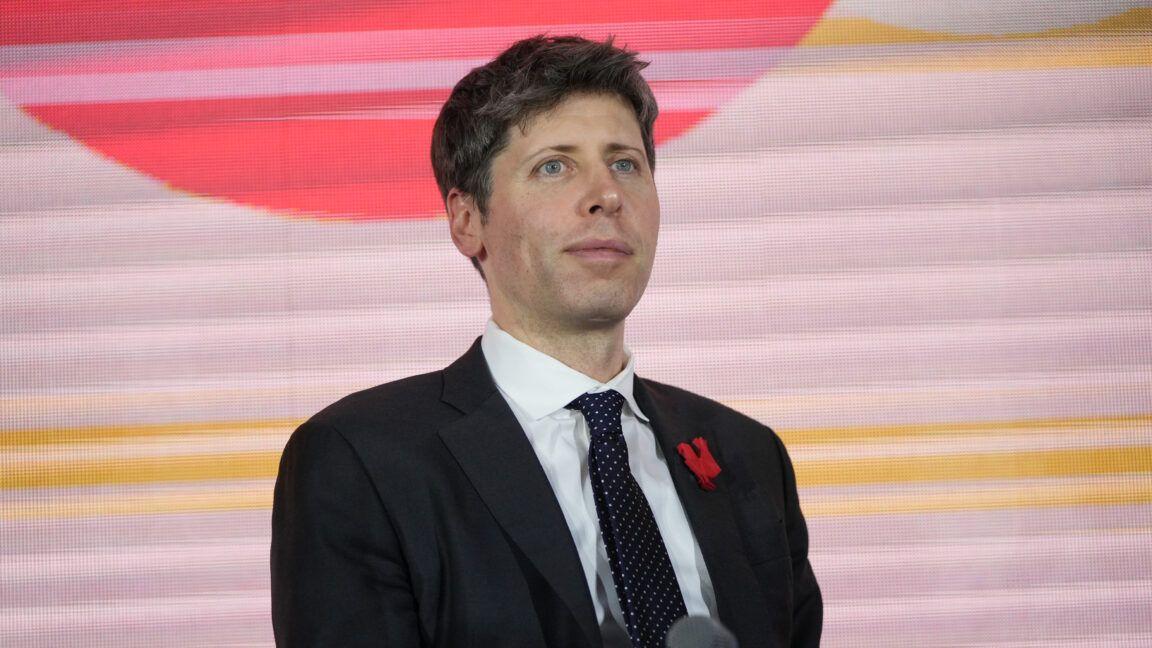
AI Infrastructure Bubble Concerns Mount as CoreWeave's Financial Engineering Raises Red Flags
18 Nov 2025•Business and Economy
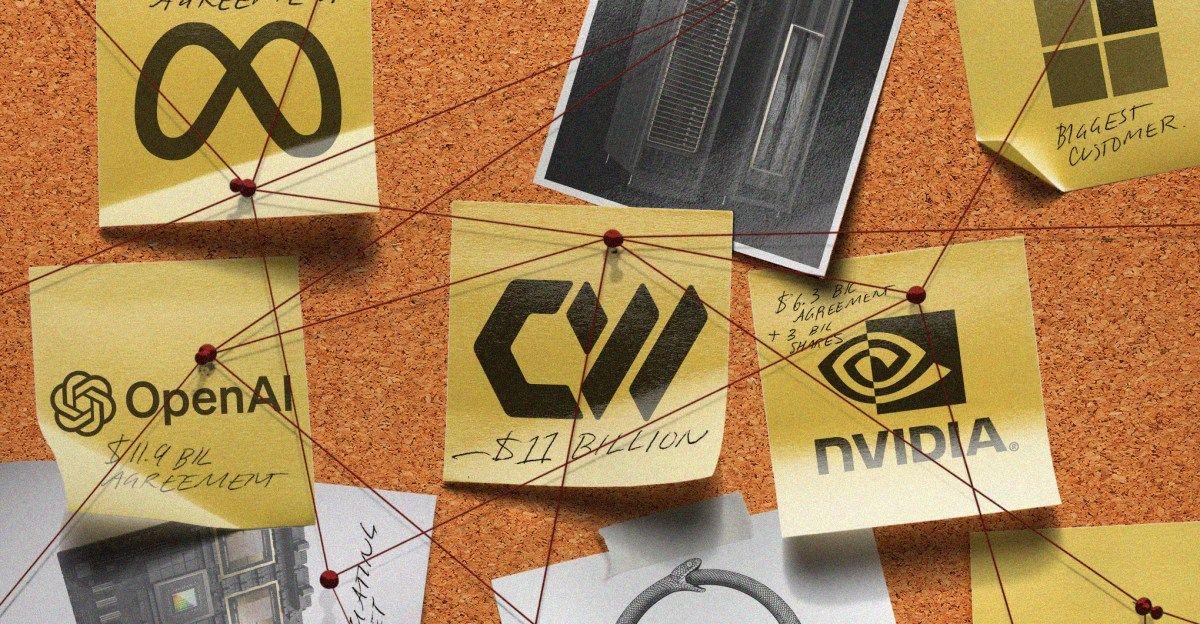
Recent Highlights
1
Pentagon threatens Anthropic with Defense Production Act over AI military use restrictions
Policy and Regulation

2
Google Gemini 3.1 Pro doubles reasoning score, beats rivals in key AI benchmarks
Technology

3
Anthropic accuses Chinese AI labs of stealing Claude through 24,000 fake accounts
Policy and Regulation

